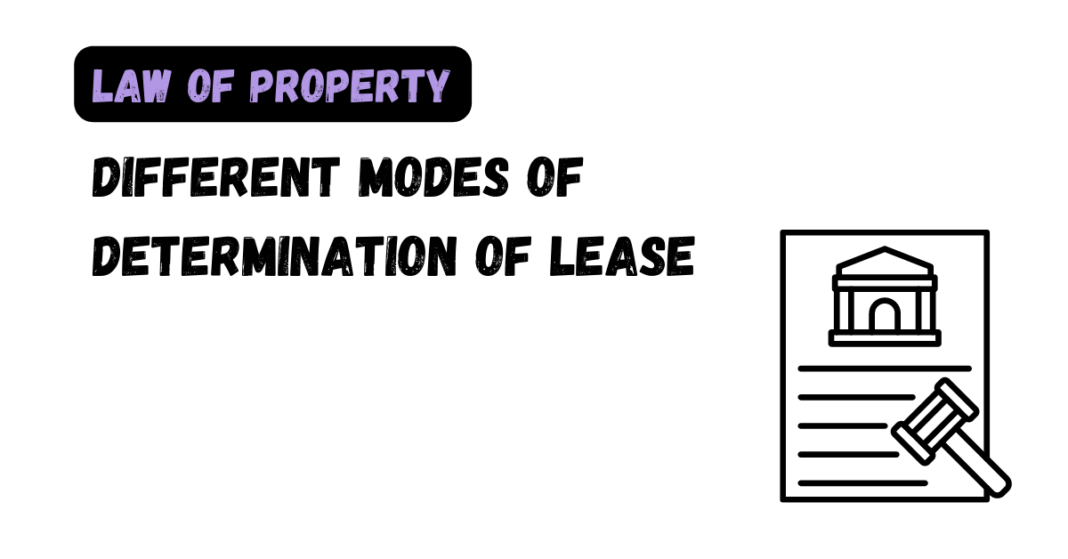A lease agreement is a contract between a lessor and a lessee that allows the lessee to use a property for a specified period in exchange for rent. The lease can be terminated in various ways depending on the terms of the agreement and the applicable laws.
Modes of Determination of a Lease
- Expiration of the lease term: A lease agreement usually has a specified duration, after which the agreement ends. Once the lease term expires, the lessor and lessee can either renew the lease or terminate the agreement.
- Mutual agreement: The lessor and lessee may agree to terminate the lease before the expiration of the lease term. This can be done by mutual consent through a written agreement or by signing a new lease agreement.
- Notice of termination: Either party can terminate the lease by giving a notice of termination as specified in the lease agreement or as required by law. The notice period may vary depending on the terms of the agreement and the applicable laws.
- Surrender: The lessee may choose to surrender the lease by giving up the property and returning the keys to the lessor. The lessor must agree to accept the surrender and terminate the lease agreement.
- Breach of contract: If either party breaches the terms of the lease agreement, the other party may terminate the agreement. For example, if the lessee fails to pay rent or violates any other terms of the agreement, the lessor may terminate the lease.
- Operation of law: The lease may be terminated by operation of law, such as in the case of destruction of the property or eminent domain.





